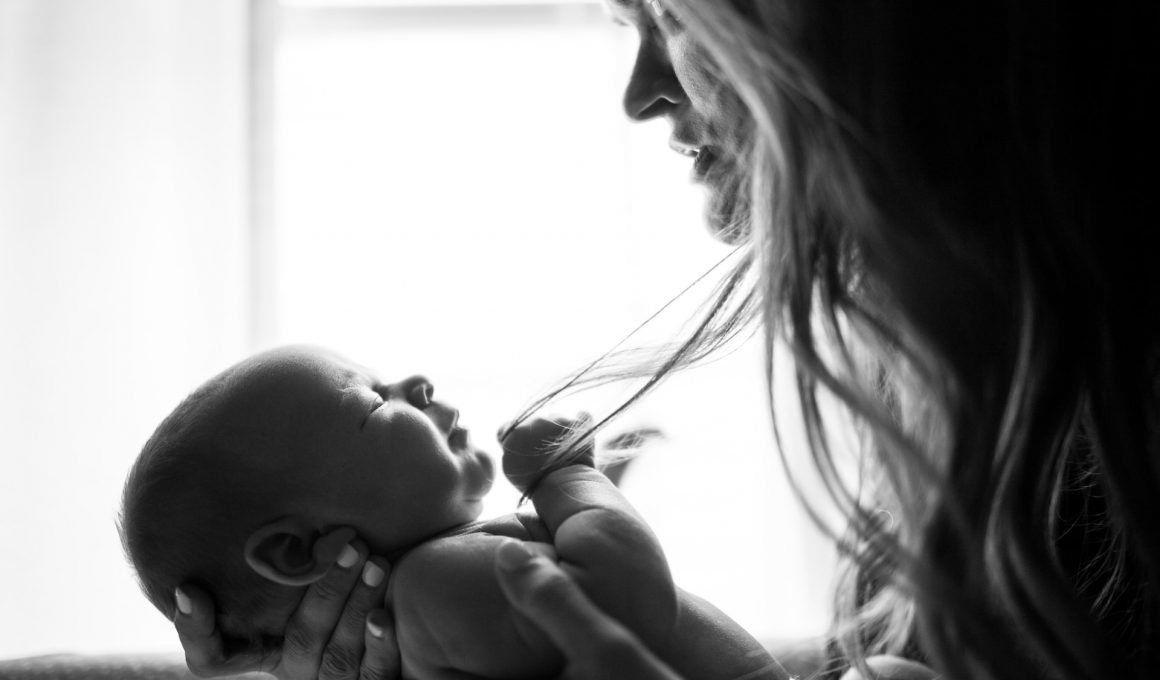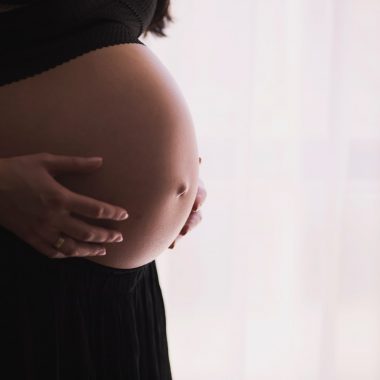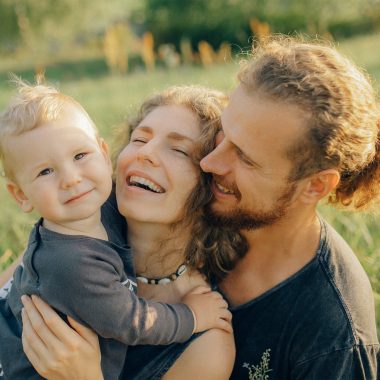Postpartum (PPD) or perinatal depression is a common form of depression experienced by mothers following the birth of a baby.
This experience involves strong feelings of sadness, worry, tiredness, and disgust, making it hard for the mother to take care of own self and the baby.
Some things to know about postpartum depression are that it:
- affects 1 in 7 women (up to 15 percent)
- can happen to any woman
- is not a fault or a sign of weakness
- needs treatment to get better
This article will share detailed information about postpartum depression, including treatments and self-care strategies.
What is Postpartum Depression?
Postpartum depression (PPD) is a common medical condition that any woman can experience after the arrival of her baby.
Having a baby is a life-changing experience. And it can trigger various emotions ranging from joy and excitement to fear and anxiety.
- You may feel empty, emotionless, or sad, as well as happy and elated.
- You may feel like you don’t love or care for your baby enough.
- Feelings of inadequacy and weakness may overwhelm you.
All of these feelings are completely normal. The problem arises when these feelings exceed a certain level and begin interfering with your or your baby’s well-being.
If these hard feelings last for more than two weeks and the symptoms increase in severity by the day, you may be experiencing postpartum depression.
Postpartum depression can be described as the negative
- physical
- emotional
- mental
- and behavioral changes that many new mothers may experience.
Postpartum depression can happen anytime, but it often starts 1-3 weeks after your baby is born. It is important to seek treatment to get better.
What Are The Causes of Postpartum Depression?
According to researchers, postpartum depression occurs for many reasons. Besides, these reasons can vary largely for different people.
Postpartum depression is thought to be a result of a combination of physical, chemical, social, and psychological factors.
It is not, however, related to anything a mother does or does not do.
There are many different possible causes for the onset of postpartum depression.
Changes in Hormonal Levels
During pregnancy, the levels of female reproductive hormones (estrogen and progesterone) increase tenfold. After birth, these hormone levels drop sharply. By three days after the birth, the levels of estrogen and progesterone drop back to what they were before pregnancy.
These factors may cause changes in the mother’s brain that can trigger mood swings.
Low levels of thyroid hormones
Thyroid hormones help the body use and store energy from food. According to Stanford University researchers, the level of thyroid hormones may drop after birth. This can contribute to symptoms of postpartum depression.
Sleep deprivation
Being a new parent might mean going through many new challenges. Sleep deprivation is one of them. And it can worsen the symptoms of postpartum depression.
Physical changes
Labor and delivery physically affect the mother’s body, and it can be hard to accept these changes. This may also impact the mother’s mental and emotional health.
Psychological causes
A mother may feel overwhelmed with the responsibility of caring for a baby.
- Stress
- Having lesser free or personal time
- Doubts about being a good parent
- Increased responsibilities
- Lack of support
All of these factors may have negative impacts on a mother’s psychological wellbeing.
Possible Risk factors of PPD
There are certain risk factors for postpartum depression.
Genes: According to research, genes play a significant role in postpartum depression. There are higher chances for depression to occur in people who have a family history of depression.
History of depression: Some researchers suggest that mothers who have previously experienced depression may be more prone to postpartum depression.
Increased stress: Having a baby involves many changes. Sometimes, even positive changes may cause a certain amount of stress. Lack of support, health problems, multiple births, death, marital conflict, separation, divorce, and low income are all possible factors that contribute to increased stress.
Other Risk Factors
Other risk factors which may be a cause of postpartum depression are:
- Having a preterm baby
- Having a baby with special needs
- Age of pregnancy (The younger you are, the higher the risk)
- History of alcohol or drug misuse.
What Are The Symptoms of Postpartum Depression?
Postpartum depression is extremely common. But some people feel ashamed of their depression symptoms.
You should always keep in mind that you are not alone. Postpartum depression doesn’t mean that you are a bad parent.
You may have postpartum depression if you experience any of the following:
- Feeling sad, restless, worried, or hopeless
- Feeling shame or guilt
- Feelings of panic or fear a lot of the time
- Worrying excessively or feeling on edge
- Loss of interest in hobbies or things enjoyed before pregnancy or birth
- Changes in appetite or eating habits
- Loss or gain of weight
- Loss of energy and motivation
- Trouble sleeping or wanting to sleep all the time
- Crying for no apparent reason or excessively
- Difficulty thinking or focusing
- Withdrawing from loved ones, including the baby
- Having trouble bonding with the baby
- Thinking about suicide
How Is Postpartum Depression Diagnosed?
Anyone exhibiting or experiencing symptoms of postpartum depression that last two weeks or longer within one year after birth should seek medical attention.
Only an expert can evaluate your symptoms and medical history correctly. The diagnostic process can involve blood tests that will aid in diagnosing postpartum depression.
Other obvious symptoms can be recognized from studying:
- Sleep patterns
- Eating habits
- Energy levels
- Feelings of disturbance
- Recent life events
- History of depression
- Medication history
These factors will help a medical expert identify postpartum depression.
Types of Postpartum Depression
There are three terms that are typically used to describe the mood changes experienced by mothers after giving birth:
Baby blues
Baby blues is characterized by sudden mood swings, such as high happiness levels followed by extreme sadness. These rapid fluctuations in emotions are characteristic of baby blues.
It happens to 70% of women right after childbirth, whereas the onset of postpartum depression can begin much later.
Baby blues are very common and may last for only a few hours or as long as one to two weeks. (Postpartum depression lasts for longer than two weeks.)
A mother going through baby blues usually doesn’t need medical attention. Joining support groups, talking with other moms, and the support of family or friends may be sufficient to feel better.
Postpartum depression (PPD)
Postpartum depression can happen anytime between a few days to months after birth.
A mother with postpartum depression will experience feelings similar to baby blues but with far greater intensity. Sadness, anxiety, and hopelessness may overwhelm the mother and keep her from engaging in activities she does on a daily basis.
A mother’s ability to function may be affected. Postpartum depression needs medical attention and intervention. In the absence of medical help, symptoms may worsen.
Postpartum psychosis
This is a rare and severe form of depression.
About 1 or 2 in 1000 women suffers from postpartum psychosis after the arrival of her baby. It usually begins in the first two weeks after giving birth.
Women with certain mental health conditions like bipolar disorder are more prone to suffer from postpartum psychosis as compared to other mothers.
A mother with postpartum psychosis may lose touch with reality, have auditory hallucinations and delusions, and feel very confused, hopeless, upset, or restless. Feeling paranoid, having trouble sleeping, thinking about or trying to hurt one’s self, the baby or others needs immediate medical attention and treatment right.
What Is The Difference Between Baby Blues and Postpartum Depression?
Many women suffer from baby blues.
Since it is very common and exhibits similar but milder symptoms of postpartum depression, it is important to know the differences between the two.
Postpartum depression needs appropriate medical attention, and timing is important for the life quality of the mother and the baby.
Baby blues last from a few days up to two weeks with milder symptoms like,
- Mood swings
- Sadness and/or crying
- Difficulty concentrating
- Difficulty sleeping
- Feeling anxious and irritable
Postpartum depression usually begins within the first month after childbirth. However, it can also begin during pregnancy or at any point within the first year after birth. It lasts longer than a few days and needs medical intervention. It does not fade away on its own.
More intense symptoms may include:
- Severe mood swings
- Feeling angry, worried, sad, restless, or hopeless
- Loss of interest in things enjoyed before pregnancy or delivery
- Extreme changes in appetite
- Trouble sleeping or wanting to sleep all the time
- Withdrawing from loved ones, even the baby
- Feeling guilt and shame
- Persistent physical problems, such as headaches or an upset stomach
Some women experience these symptoms during pregnancy. A mother experiencing any of these symptoms for more than two weeks should seek medical evaluation.
What are The Possible Effects of Postpartum Depression?
Research highlights that postpartum depression may affect many aspects of daily life. Besides the mother’s general and psychological health, the baby and the partner may also be seriously affected.
- Untreated postpartum depression may last for months or even years with the potential to turn into a chronic depressive disorder.
- Persistent physical problems like headaches and an upset stomach may be observed.
- Mothers with postpartum depression have significantly higher levels of anger, lower anger control, and lesser self-esteem.
- Mothers with postpartum depression experience difficulties in their relationships with others.
- Mothers with postpartum depression are at a higher risk of smoking and misusing drugs or alcohol.
- Babies whose mothers have postpartum depression are more likely to have emotional and behavioral problems, such as sleeping and eating difficulties, excessive crying, and delays in language development.
- Postpartum depression can lead to difficulties in bonding and overall emotional sensitivity or attachment between the mother and the baby.
- When a new mother experiences postpartum depression, the risk of depression in the new father may also increase. New dads are already at risk of depression regardless of whether their partners are in depressed, since they may struggle with adjusting to the new lifestyle and demands of being a parent.
How Is Postpartum Depression Treated?
Postpartum depression is treated differently based on the severity of symptoms and type of depression.
Treatment options include anti-anxiety or antidepressant medicines, psychotherapy, and support group participation.
If breastfeeding, don’t assume you can’t take medicine for depression. Your healthcare provider will guide you most properly and provide you with treatment options that do not interfere with breastfeeding.
Overcoming postpartum depression becomes easier if you are open to medical care and support.
The efficacy of your treatment is improved by discussing your preferences for
- Therapy
- Use of medicines under the supervision of an expert
- Healthy living conditions
You must bear in mind that the treatment of depression can be a long journey. Millions of women have experienced postpartum depression, and many still do.
A source of motivation is to remind yourself that you are not the only one and there is light at the end of the tunnel.
This journey involves many ups and downs. Therefore, getting support from family members and close friends and getting in touch with women who have experienced a similar journey can greatly ease the weight of your journey.
Success stories in postpartum depression treatment are supported by,
- Early diagnosis and treatment
- Finding someone to talk to such as a therapist, friend, family member, or someone who will listen to you and help you
- Joining a support group for new parents
- Healthy life habits (eating healthy, exercising, etc.)
- Prioritizing rest for yourself
- Finding time to go out with friends
- Finding time for self-care and activities you enjoy
- Getting help with household chores
- Practicing breathing and meditation techniques (even sparing just a few minutes will be enough for a beginning)
Can Postpartum Depression Be Prevented?
The answer to that is both yes and no. Postpartum depression cannot be entirely prevented. But if you are aware of the early signs and take some precautions, you can reduce the decrease significantly.
Some studies suggest that early intervention may reduce the risk of severe postpartum depression.
Below you will find some tips that can help you prevent postpartum depression.
- Take antenatal and postnatal educational classes
- Be realistic with your expectations of yourself and your baby
- Limit visitors during the first few days
- Find a support system comprising of friends and family
- Sleep or rest when your baby sleeps
- Maintain a balanced diet
- Spare some time for exercise (take a walk and get out of the house for a break)
- Do not isolate yourself from life; stay in touch with friends and family members
- Foster your relationship with your partner
Can Dads Get Postpartum Depression?
New fathers can also experience postpartum depression. Studies suggest that an estimated 4% of new fathers experience depression in the first year after the birth of their baby.
Fathers may be overwhelmed, experience anxiety, and feel sad or fatigued. In fact, they may even share almost the same symptoms as the mothers.
Experts point out that causes for postpartum depression in men can be caused by:
- Age (young fathers are more prone to PPD)
- Depression history (males who had depression in the past)
- Financial struggles and
- Relationship problems
If you are a new father and experiencing any symptoms of depression during your partner’s pregnancy or in the first year of childbirth, you should contact a healthcare professional. Remember that early diagnosis and treatment are crucial to the quality of your life as well as your partner, baby, and family.
References: mayoclinic.com, postpartumdepression.org, webmd.com, psychologytoday.com, hopkinsmedicine.org, stanfordchildrens.org, apa.org, healthline.com, clevelandclinic.org, womenshealth.gov, ncbi.nlm.nih.gov, marchofdimes.org, medicalnewstoday.com










